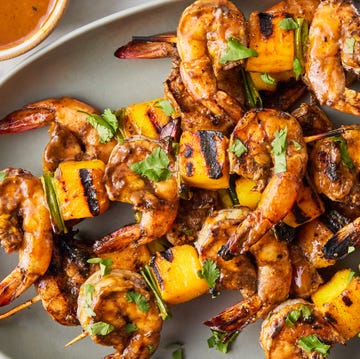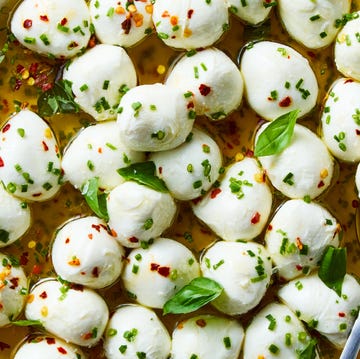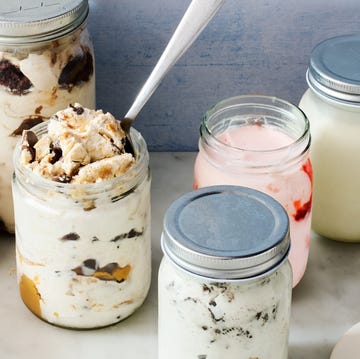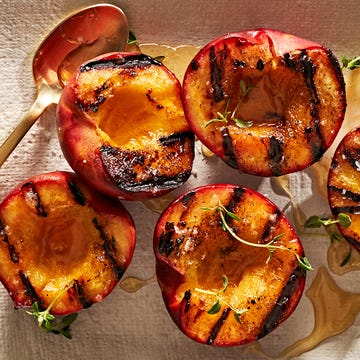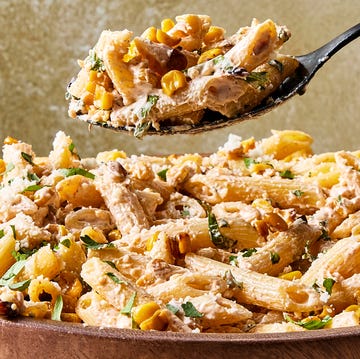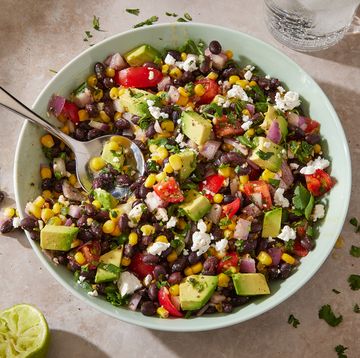Hello! Let's talk about MSG! A lot of people are scared of it!
Monosodium glutamate is a salt. Much like sodium chloride—AKA table salt—it enhances the flavor of food. It is a controversial ingredient because many still believe it leads to troublesome health conditions. The origin of its bad PR stemmed from the "Chinese restaurant syndrome" that arose in the 1960s after a certain Dr. Robert Ho Man Kwok wrote a letter to the editor of the New England Journal of Medicine speaking to the sickly side effects he experienced after eating at a Chinese restaurant: “numbness in the back of the neck, gradually radiating to both arms and the back, general weakness, and palpitation.”
But just how bad is MSG for us? There's been a This American Life segment that explores the "Chinese restaurant syndrome" debacle. There are also many articles on this topic that debunk MSG's ill effects, traces the "50-year mistruth about MSG," and an entire FDA Q&A page devoted to it. So while I'm neither a food historian or a biochemist, I have access to the internet, and on the internet there are resources available for you if you're interested in learning the nitty gritty deets of this debate.
Many readers and viewers have written in to say, "But why MSG?" To which my answer is always, "Why any spice?" I'm not here to convince you otherwise if you believe MSG is bad for you. It's a personal choice! I cook things and try to make them taste good, and sometimes, MSG helps make certain things taste even better!
What is MSG?
MSG stands for monosodium glutamate. If that sounds like a scary chemical to you, just know that the chemical name for table salt is sodium chloride, and we eat that every day.
Is MSG bad for you?
Our body needs salt. MSG is a salt. To be clear, not all salts are safe to eat. Lead diacetate, for example, was used by the Romans as a sweetener. We’re not sure how many of them died from that practice, but suffice it to say we don’t sweeten anything with lead diacetate anymore.
Now that I've sufficiently scared you for no reason, MSG is not harmful like lead diacetate. Besides, did you know our body already has around four pounds of glutamate in it?? Does it blow your mind that our own bodies are actually MSG factories? DELISH. If you don’t believe me, do you believe the USDA? “MSG is the sodium salt of glutamic acid. Glutamic acid is an amino acid, one of the building blocks of protein. It is found in virtually all food and, in abundance, in food that is high in protein, including meat, poultry, cheeses, and fish.”
Besides in our bodies, glutamic acid is found in foods like tomatoes, aged cheese, seaweed, mushrooms, and a variety of fermented goodies like miso, soy sauce, and fish sauce.
In 1908, a Japanese biochemist extracted and distilled MSG from kelp into a granulated form and due to its magical ability to heighten flavors of food, it soon became incorporated into a lot of foods: condiments, spice mixes and seasonings, snack foods, and fast food.
Nowadays, industrially produced MSG granules are made by fermenting sugar beets, sugar cane, and other similarly starchy ingredients.
What does it taste like?
If you lick your finger, dab it in a little bit of granulated MSG, and taste it, it's not really mind-blowing: a little sweet and salty, and vaguely seafood-like, reminiscent of sweet crab meat. If I lick too much on its own, it starts to taste like sweet melted plastic.
The magic comes into play when MSG is used alongside ingredients that need a little umami boost. That's why it's often found in bagged snacks, fast food, and my favorite mayo. However, it doesn't make everything taste superior every single time and it's not the ultimate trump card when it comes to flavors! Aaron and I tasted so many snacks and [spoiler alert]: we often preferred the MSG-free one!
What MSG is good for is when your ingredient doesn't already have too much naturally-occurring glutamate—you sprinkle a little MSG in there to help the inherently-delicious but all-too-gentle flavors bloom.
In my experiment, I made MSG-ed and MSG-free versions of sunny-side up eggs, a simple cucumber salad, and some stir-fried garlicky chicken gizzard. Protein-heavy numbers like eggs and gizzards already come packed with glutamates, so the MSG didn't really shine bright or bring anything too exciting to the table. Where the MSG really stood out was the cucumber salad: just a pinch was enough to make each crisp, refreshing bite extraordinarily savory and addictively appetizing.
Should you use MSG?
If you're prone to overthinking as much I am, "should" is a particularly loaded word. I'll spare you a trip down my anxiety whirlpool: There is no "should" or "should not" for me in this MSG game. There is only want and desire, and you decide if you want this in your life.
Is granulated MSG a necessary addition in cooking? No. Will I continue to use it? Yes. Why? It’s a matter of personal taste, personal choice, and sometimes pure whim. You do you, because that's all life is.









